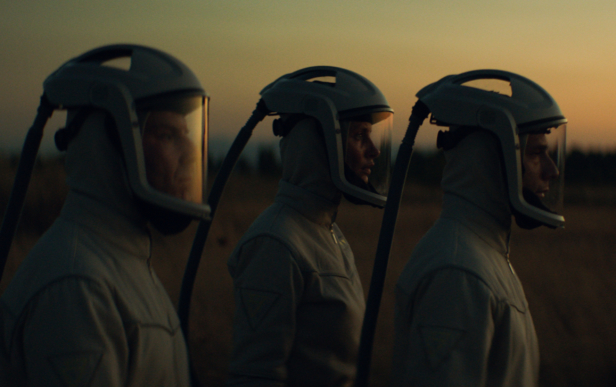The old abandoned airport of Athens was once converted into a refugee camp until suddenly on the morning of 2 June 2017 everyone was removed. Director Yorgos Zois uses this vast, eerie real-life location, that was left like a ghost town, to unsettling ends as a reminder of global events and the shocking loss of human life.
The main cinematic influence, going by the title, is Steven Spielberg’s Close Encounters Of The Third Kind – which the director pays glorious homage to with an impressive light show. It’s a heartening moment in an otherwise bleak and confrontational film, where music provides comfort from loneliness. A five-tone signal sent to a space colony in the future may sound familiar to the viewer but to the three archaeologists sent down to Earth to explore it is a mystery. As in Spielberg’s aforementioned film, belief, faith and communication are key aspects of this smart and affecting short.
When the explorers arrive, they find an empty airport, where rows and rows of tents are laid out, GO HOME graffiti is emblazoned on the walls, prayer mats and shoes are lined up and twisted bicycles and chess pieces are covered in dust and cobwebs. The remnants of life are scattered throughout the terminal. Words on postcards to loved ones are read aloud and the lyrics from Leonard Cohen’s ‘First We Take Manhattan’ are scribbled on bathroom walls. These astronauts are given clues as to what has taken place on Earth and as they excavate memories, history and popular culture provocative ideas form.
The deserted airport setting brings to mind Stephen King’s short story, The Langoliers, where a group of passengers are left to fend for themselves against a breed of monster that cleans up the past by noisily gobbling it up. That book is probably not a direct influence on Yorgos Zois’ fiercely political film but they do share common ideas about the importance of history and not forgetting what came before, especially the violence.
